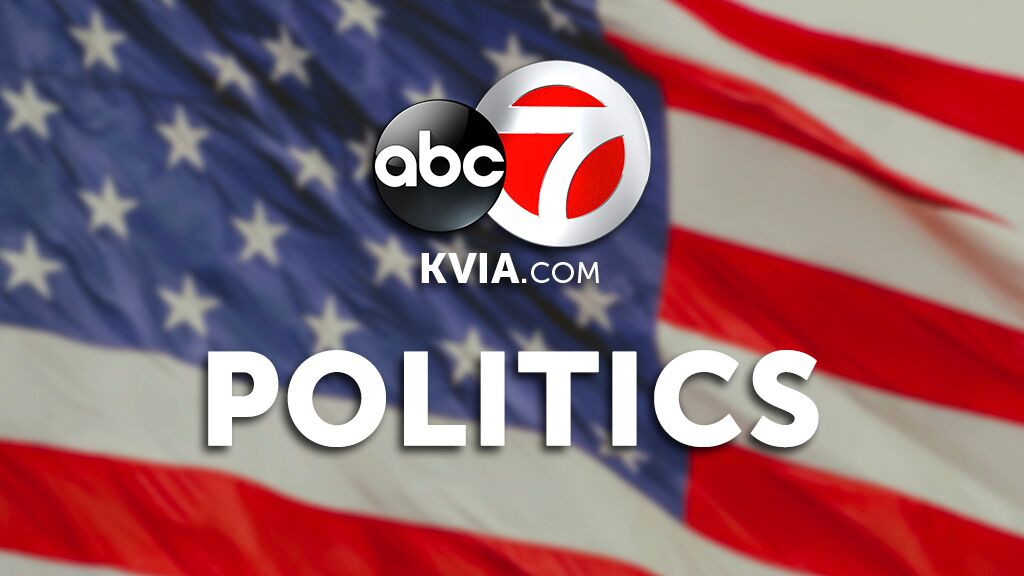Pop-up super PACs flood Georgia runoff: ‘It’s about the big message’

The message on the two trucks with the blue electronic billboards was hardly subtle and impossible to miss as they rolled through the busy streets of Atlanta.
Drivers paused at lights, pulled out their cell phones to take pictures and watched the bright lights pass by. The backs and sides of each truck were outfitted with flashing LED lit political ads measuring roughly 10-feet wide by 6-feet tall. Their message, “Vote Democrat, Get $1200,” was very big indeed.
“This story isn’t so much about the big money, it’s about the big message” said Jon Jones as he tailed his two electronic billboard trucks.
Jones is the man behind “Relation PAC” a new and relatively small super PAC, or political action committee, entering the fray ahead of Georgia’s Senate runoff races on January 5. While personal donations to political campaigns are capped at $2,800, PACs can receive unlimited funding from individuals, corporations, unions and other groups. In other words, they’re a good way to get lots of money without naming names.
With control of the US Senate at stake, Georgia’s two senate races are seeing a deluge of money, both campaign and outside money, flood in. Republican Sens. David Perdue and Kelly Loeffler are defending their seats against their respective Democratic challengers, Jon Ossoff and Rev. Raphael Warnock.
More money, more PAC ads
Since November 10, super PACs have put upwards of $226 million into Peach state politics, mostly in the form of omnipresent advertising.
The Peachtree PAC, a committee affiliated with Senate Majority Leader Mitch McConnell is due to deliver $43 million in TV and radio marketing ahead of election day. Despite the name suggesting homegrown roots, Peachtree PAC is an arm of the Senate Leadership Fund, a super PAC affiliated with McConnell, a Kentucky Republican.
“The most concerning (PACs) are those that pop up, just before a hotly contested election, like the ones we’re seeing in Georgia,” explained Brendan Fischer, federal reform director at the Campaign Legal Center. Those PACs “create the appearance of having local roots, but in reality, are financed by or affiliated with national party interests.”
Jones followed his rolling billboard campaign around Georgia from the seat of a rental car. He lives primarily in New York.
“I would prefer for the super PAC to not exist,” he said of his own group. “Personally, I don’t think PAC money should exist this way. I wish they would reform these campaign finance laws. It’s kind of a shame that people can do this and that there can be so much money and dark money in our politics.”
But, he added, “These are the rules that we were given. This is the playing field that we’re on.” So he kept following his large, flickering and fully financed advertisements.
As for who financed them?
“We’ll be disclosing that at the end of the month like we’re required to do,” he said. “But honestly, if we wanted to hide who our donors were, we could. Just put a corporation in between your donor and the FEC and you can do that. It’s a shame that that’s possible to do. It’s very easy. It’s a couple of hours of paperwork from your lawyer, and you’re good to go.”
Breaking through to voters
Jones’ Relation PAC opted for “guerilla marketing” by rolling hard-to-miss billboards through neighborhoods and congested traffic. The extra-large lettering reads “Don’t let David Perdue Steal Your Check. Vote Democrat. Get $1200.” The slogan refers to the Covid-19 stimulus checks that the Democratic candidates are pushing for.
Others, such as the Republican-backed Club for Growth Action Committee is using television ads to promote the unfounded belief that Democrats rigged the presidential election. “They can’t steal this election if we all show up!” the PAC’s television commercial chimes.
Humor is the chosen route for Democrat-backed Meidas Touch. Their television ads show Perdue and Loeffler with green faces and Grinch-like features. A nursery rhyme narration includes the verse, “Their stockings were stuffed from the stocks that were sold, when they heard Covid was coming, before we were told.”
Attack ads from the right include the GOP group American Crossroads PAC, which produced a commercial falsely claiming that Warnock is “in bed with defund the police radicals.”
False, inflammatory or funny, the idea is the same: the more ads, the more likely the victory.
“Money matters because the candidate with the most money usually wins,” says Fischer. “Money matters because the wealthy donors who can afford to write six figure super PAC checks have their voices heard louder than anybody else.”
Sick of it
“Enough is enough!” said Georgian Mark Giuliani (no relation to the President’s lawyer), who recently spoke with CNN at a local sports bar filled with TVs. “I get tired of seeing people bashing people. We’re supposed to be getting along and we just can’t.”
Giuliani felt similarly to many other Georgians and is sick of being inundated with political ads.
In a state with more than 10 million people, nearly $500 million has been spent in political advertising since early November. That’s equivalent to around $50 per person statewide, and the money keeps coming.
“Part of the problem is our campaign finance rules and laws are a bit out of whack,” Jones explained. “It’s kind of a shame that you can have all this money come into a race like this and not even know where its coming from, just to push special interests. The truth is, most special interests aren’t pushing for every day Americans. They’re pushing for corporate interests and it shows.”
